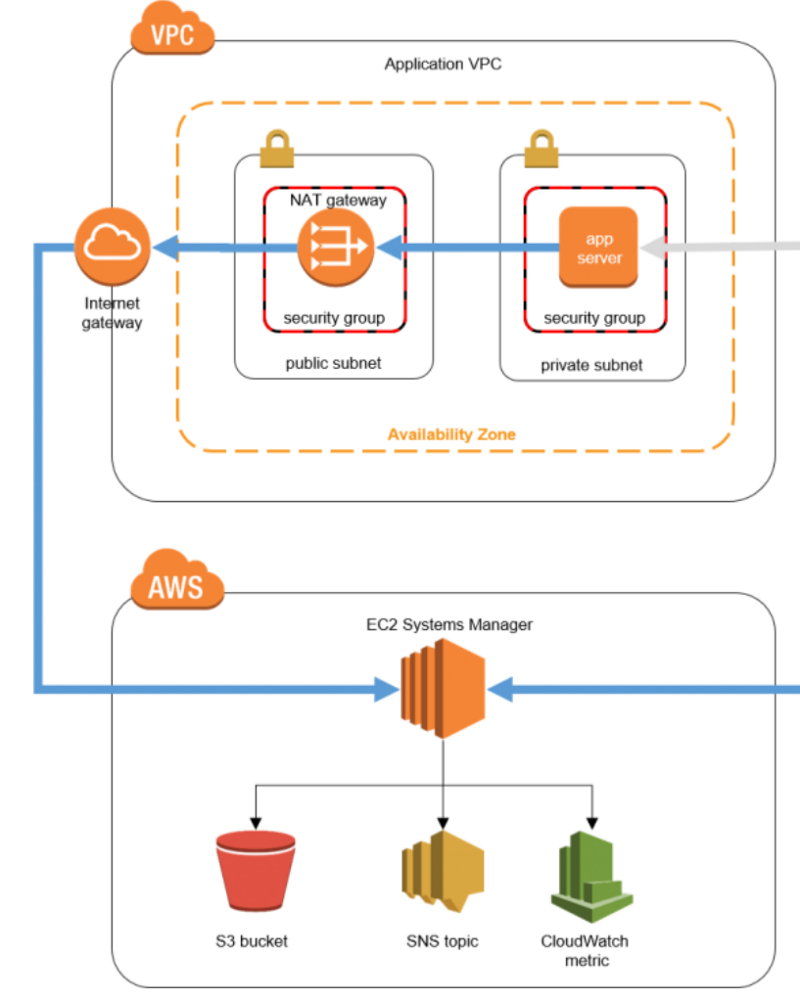

Port Forwarding for AWS System Manager Session Manager allows you to securely create tunnels between your instances deployed in private subnets, without the need to start the SSH service on the server, to open the SSH port in the security group, or the need to use a bastion host. In OpenSSH, local port forwarding is configured using the -L option: ssh -L 9999:localhost:8888 example opens a connection to the instance as user user, open port 9999 on the local computer, a forward everything from there to localhost:8888. The server connects to a configurated destination port, possibly on a different machine than the SSH server. Basically, the SSH client listens for connections on a configured port, and when it receives a connection, it tunnels the connection to an SSH server. Many customers use SSH Tunnel to remotely access services not exposed to the public internet. Screenshot from AWS System Manager Console. The network configuration that will be used is represented below: In addition, to enable internet connectivity, this gateway make sure that the internet doesn’t initiate a connection with the instance. In order to give access to the internet to our private subnet we will be using a NAT Gateway.
Aws bastion host install#
Since will be hosting a Jupyter Notebook on our instance located on the Private Subnet, it will need internet access ( so that we can install and update Python packages).
Aws bastion host how to#
You can check on how to install the plugin for different OS here! Network Configurationīefore creating the EC2 instance you will need a VPC with a Public and Private Subnets. You will need to Install the Session Manager plugin for the AWS CLI in order to use the CLI to start and end sessions that connect you to your managed instances. No need to open the ports in the security groups.The user does not need to use a bastion host and Public IPs.Shell access is completely contained within Identity and Access Management (IAM) policies, you won’t need to manage SSH keys.It will log the commands issued during the session, as well as the results.AWS SSM provides the ability to establish a shell on your systems through its native service, or by using it as a tunnel for other protocols, such as Secure Shell (SSH). Session Manager can be used to access instances within private subnets that allow no ingress from the internet.


Even a t2.micro costs about $10/month.īastion Host architecture in order to access the private instance.

Because of its exposure to potential attacks, a bastion host must minimize the chances of penetrations. A common approach to connect to an EC2 instance on a private subnet of your VPC is to use a Bastion Host.Ī Bastion Host is a server whose purpose is to provide access to a private network from an external network (such as the Internet). It is well known that we can not directly connect to a private EC2 instance unless there is VPN Connectivity or Direct Connect or other network connectivity source with the VPC.


 0 kommentar(er)
0 kommentar(er)
